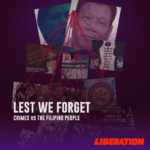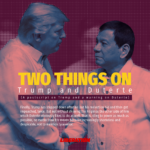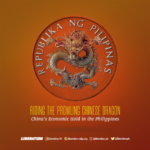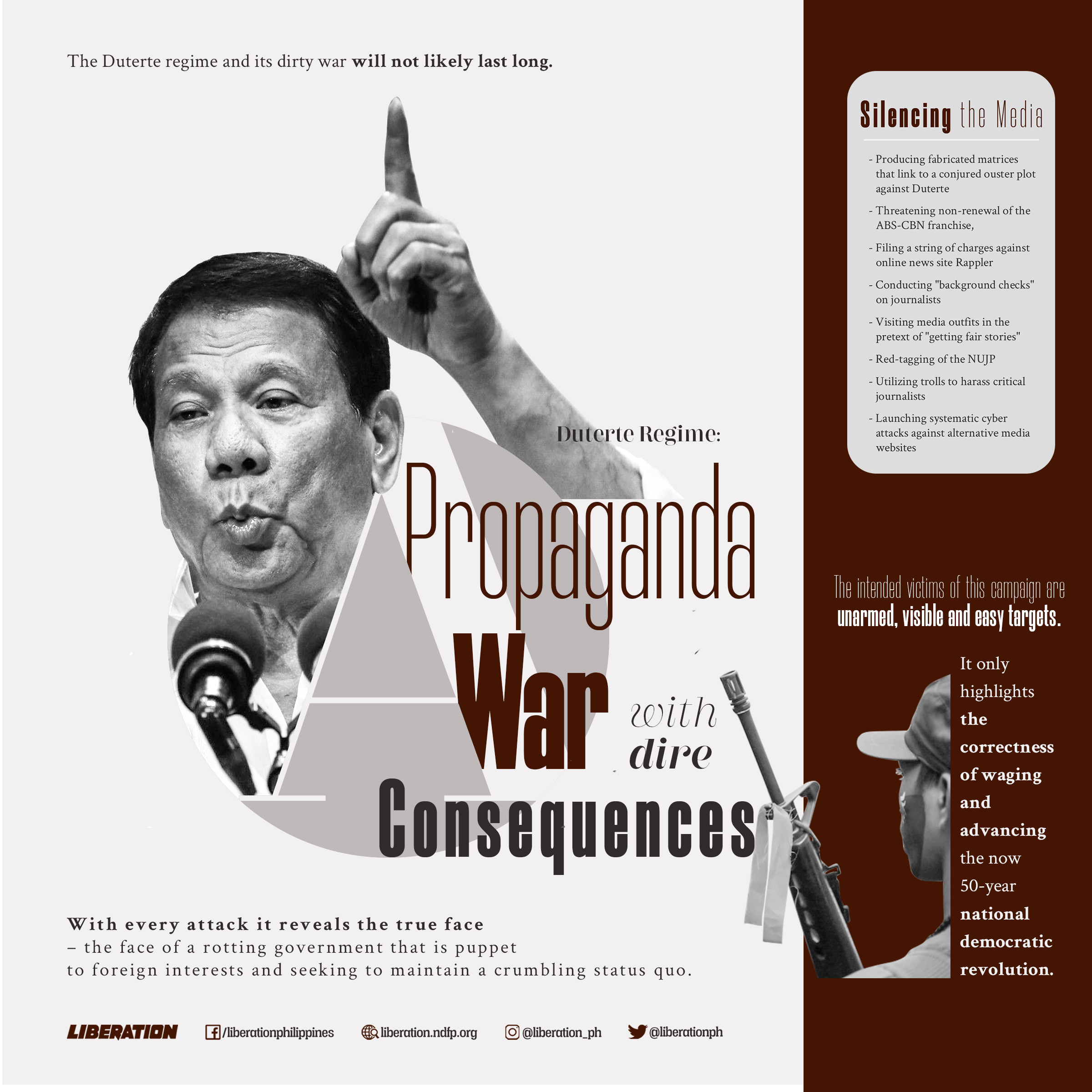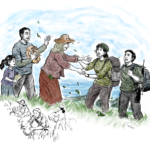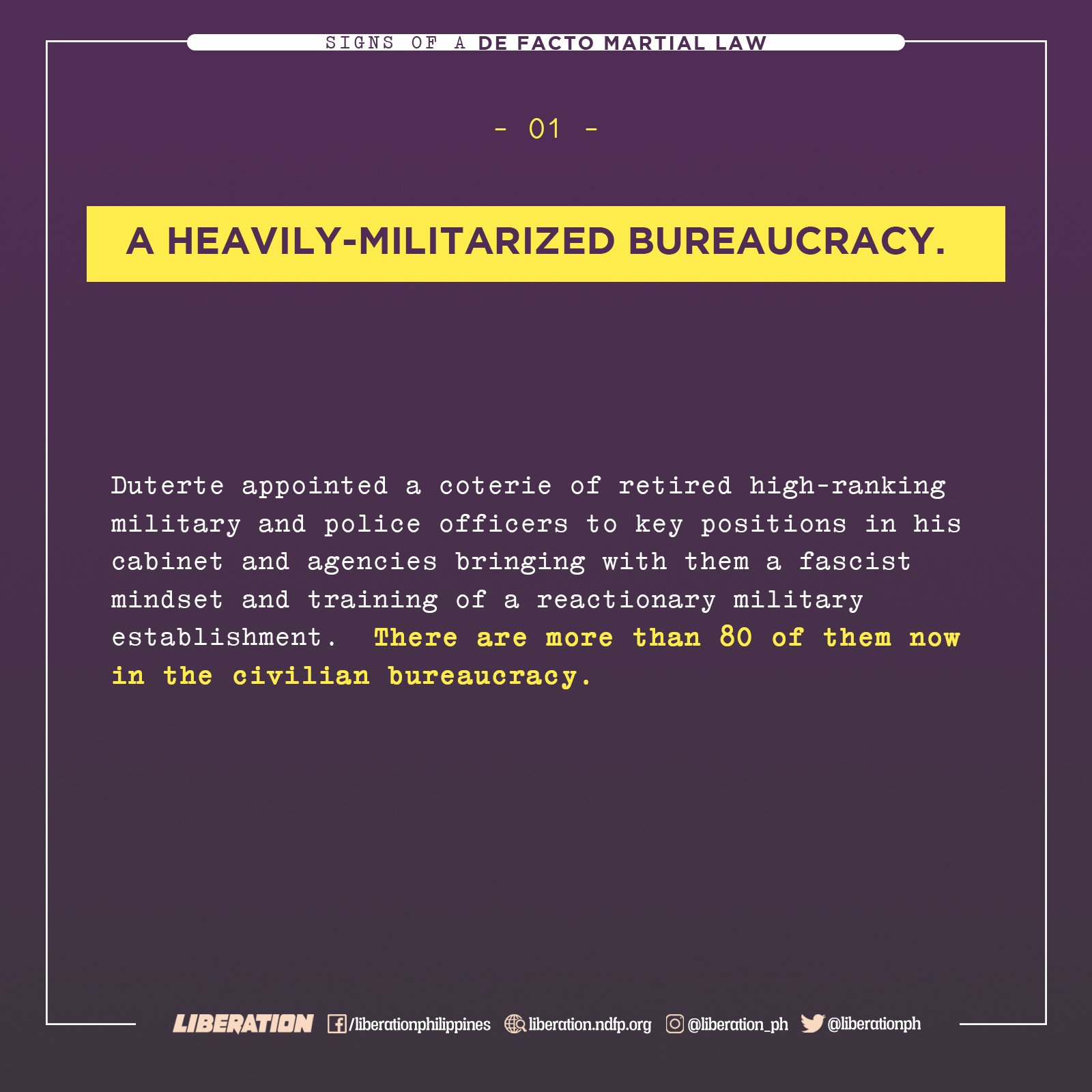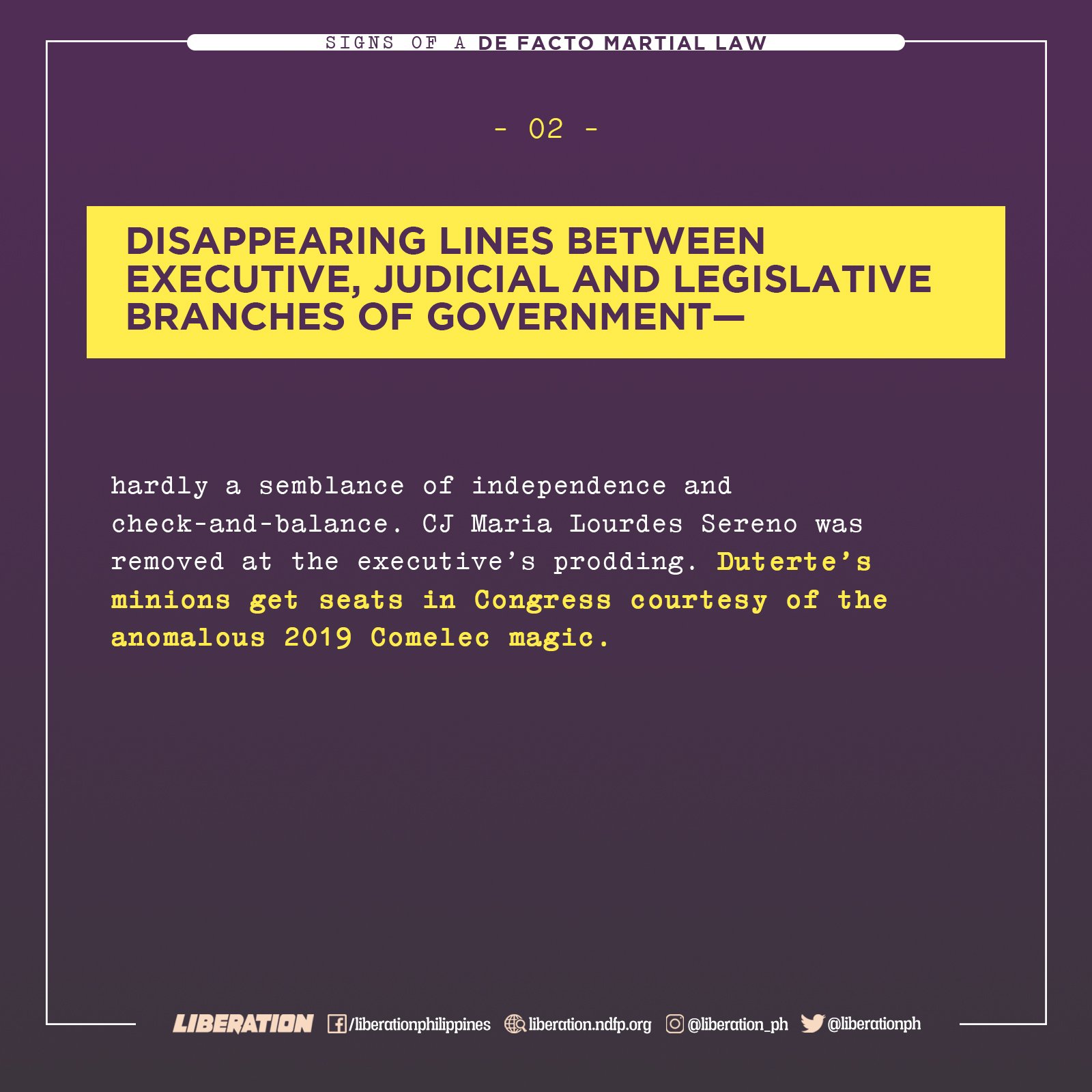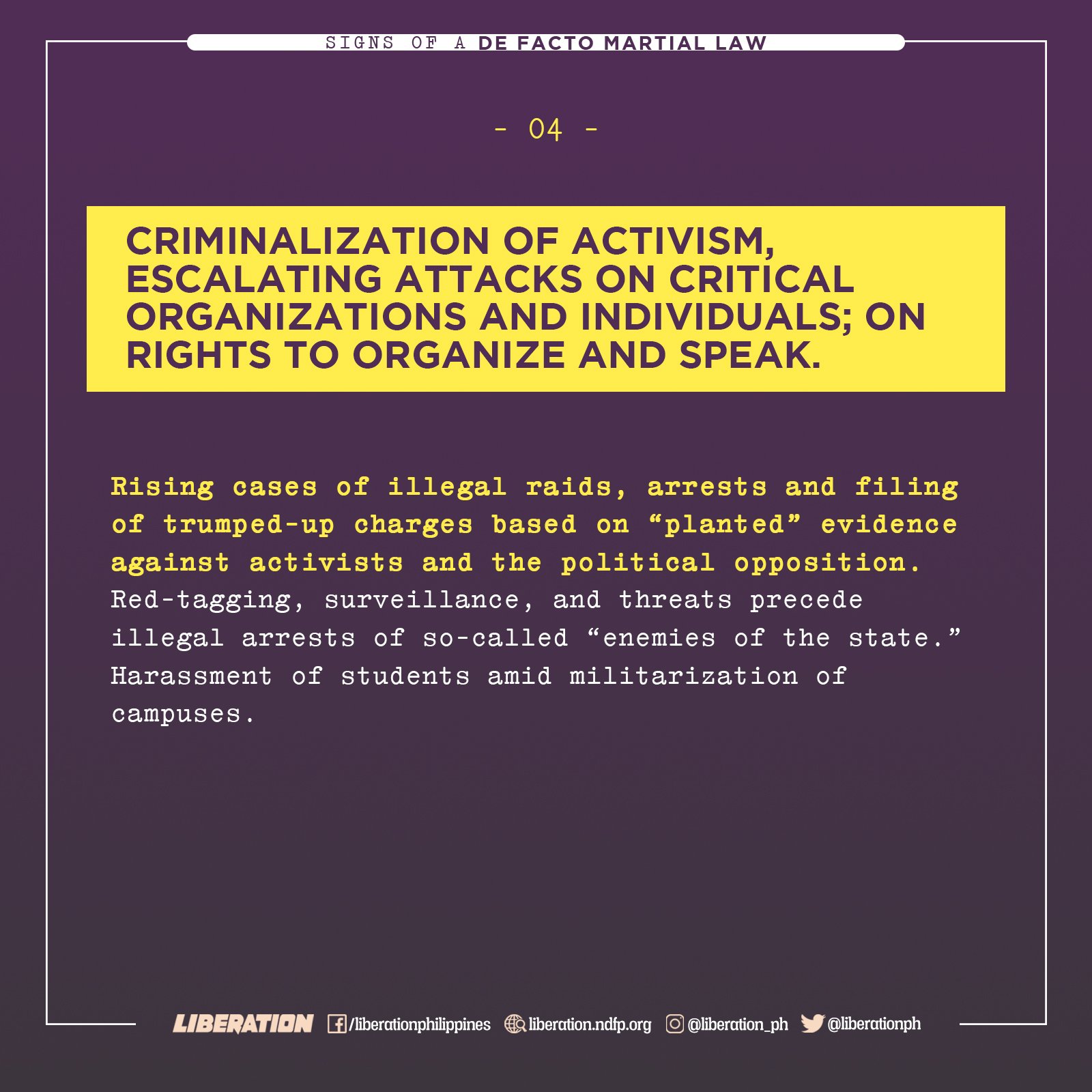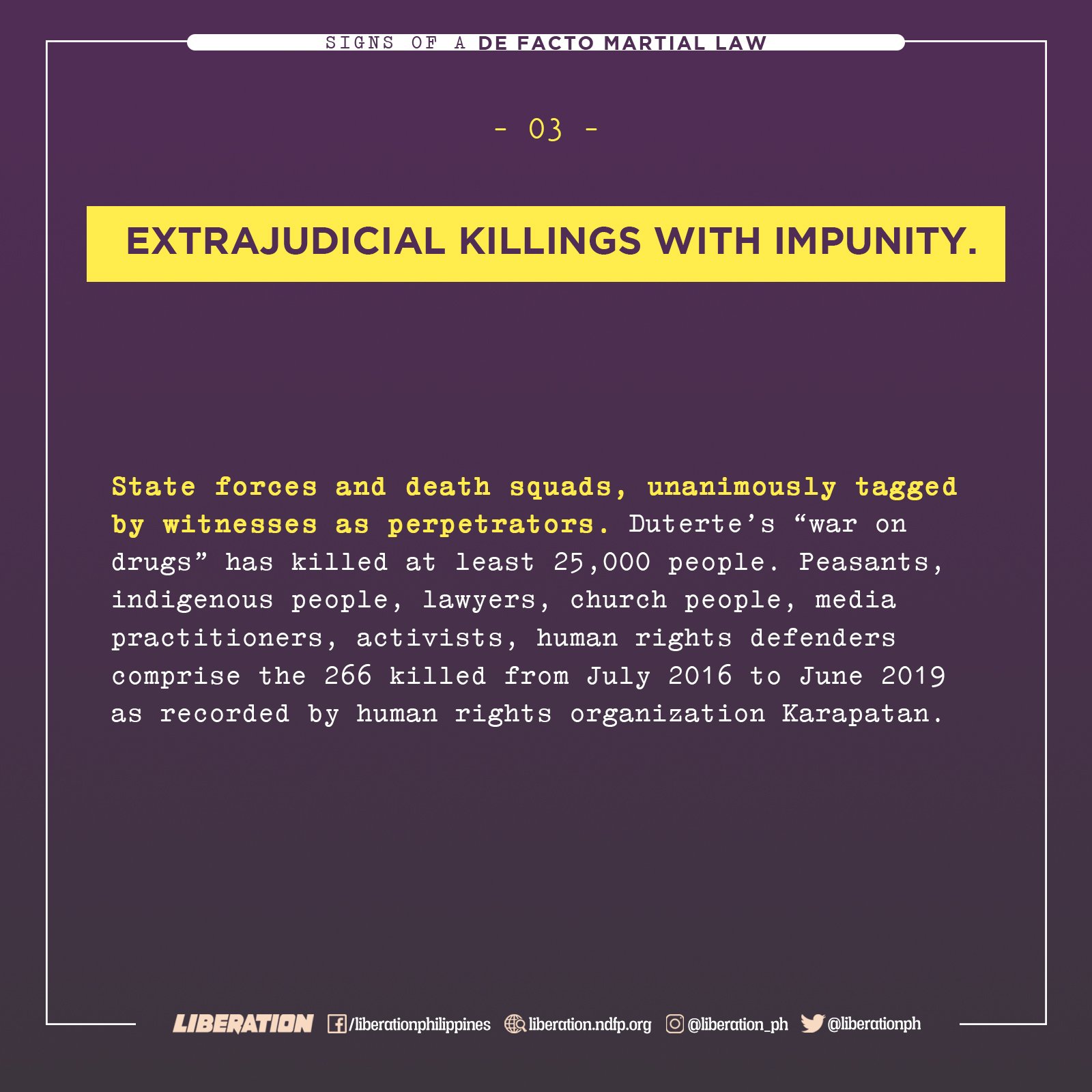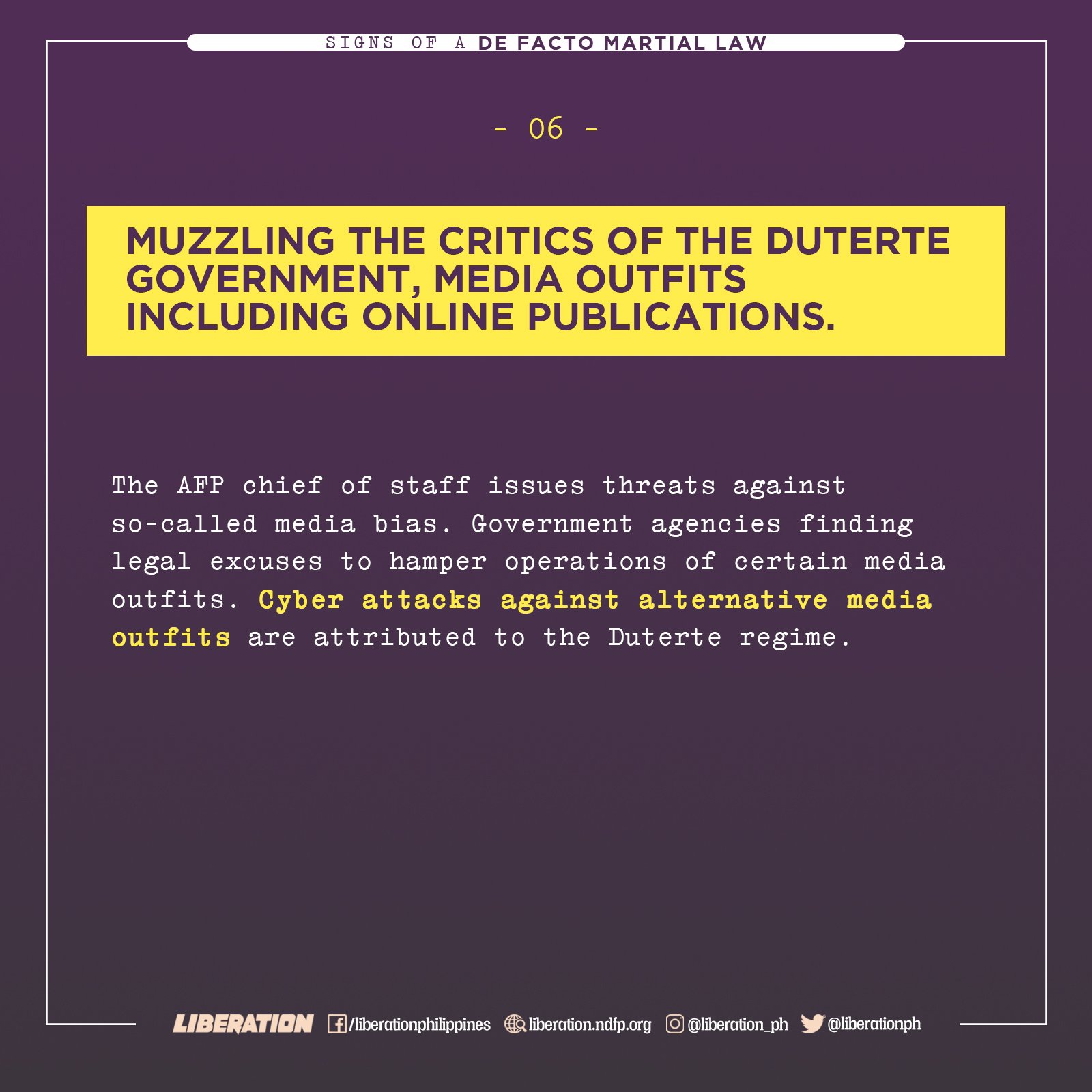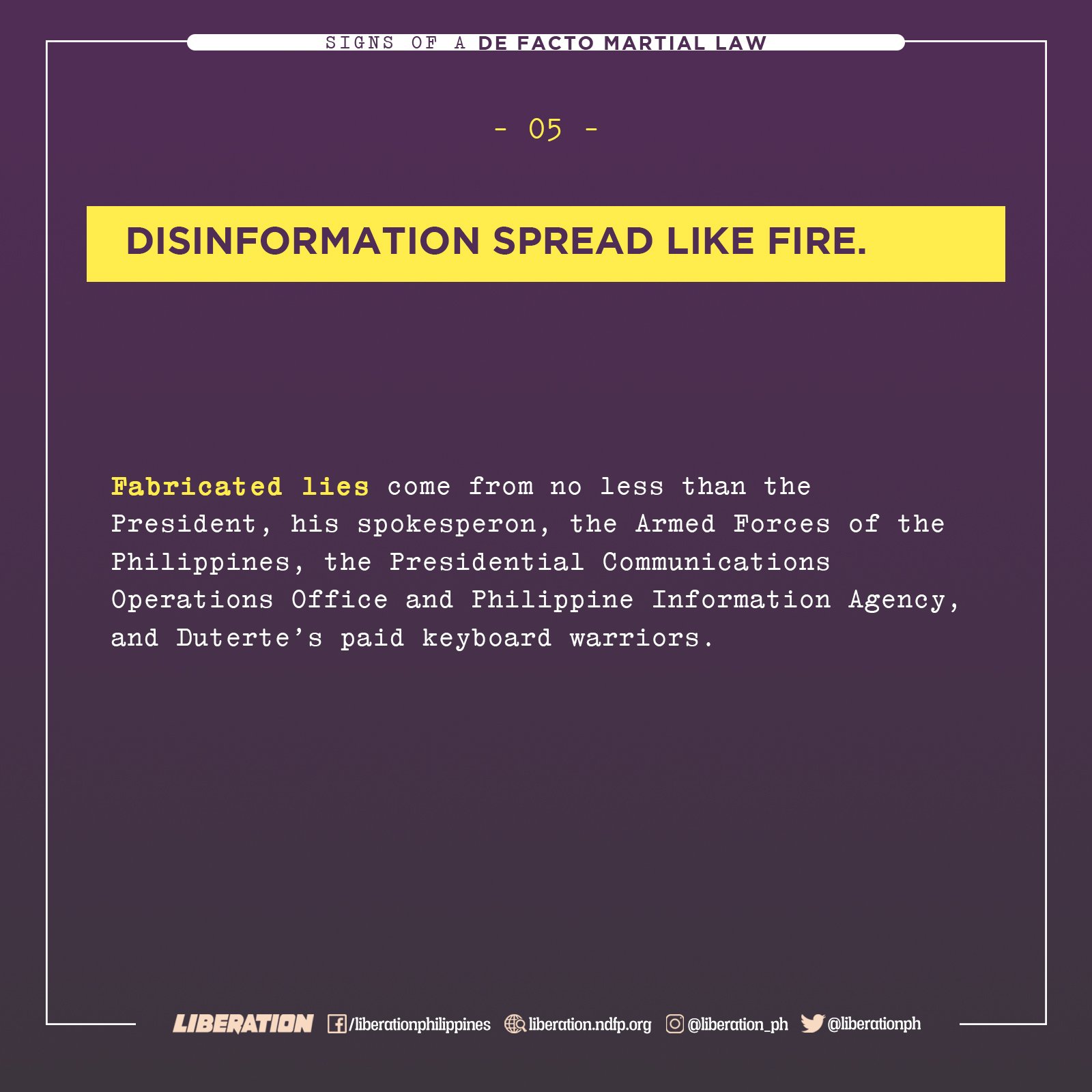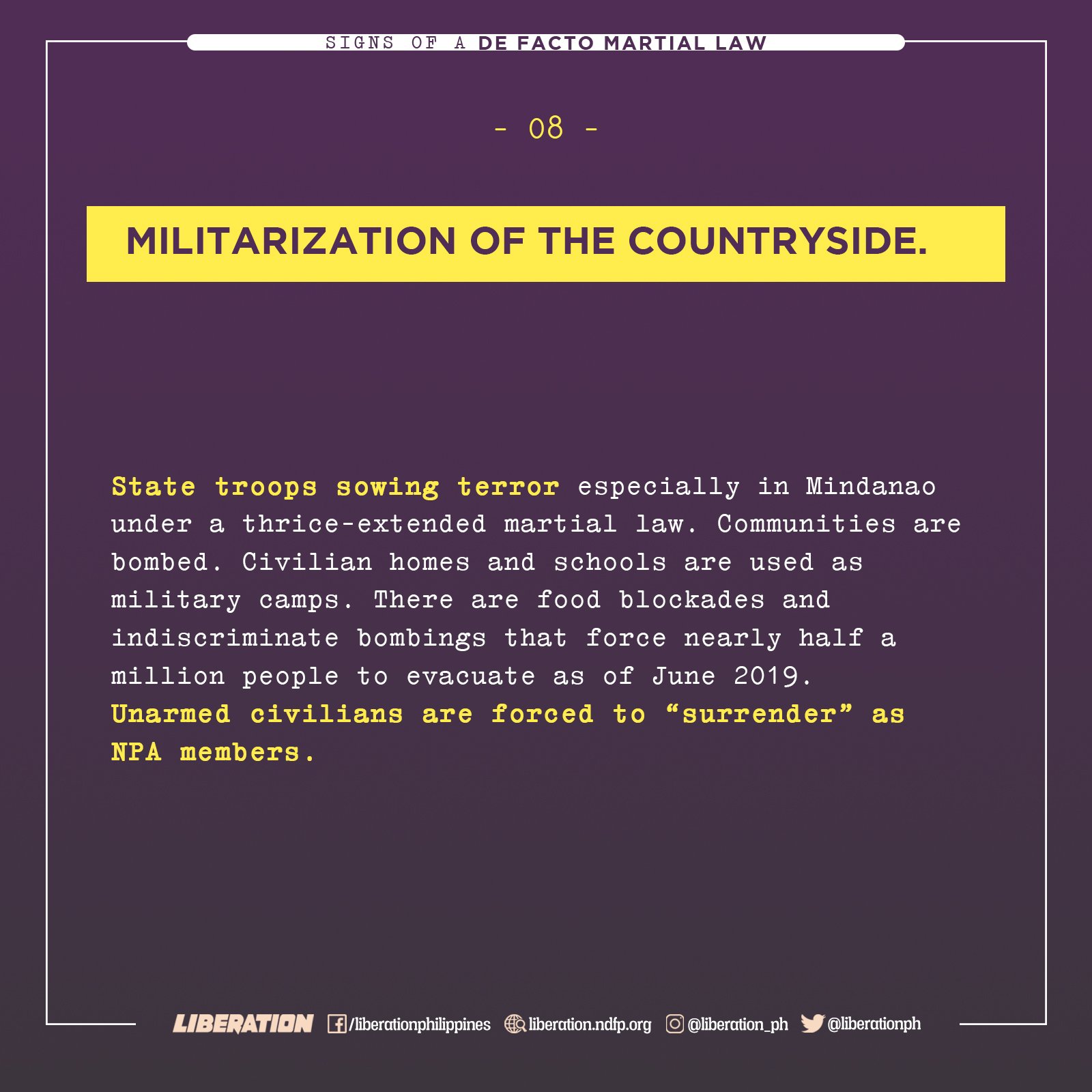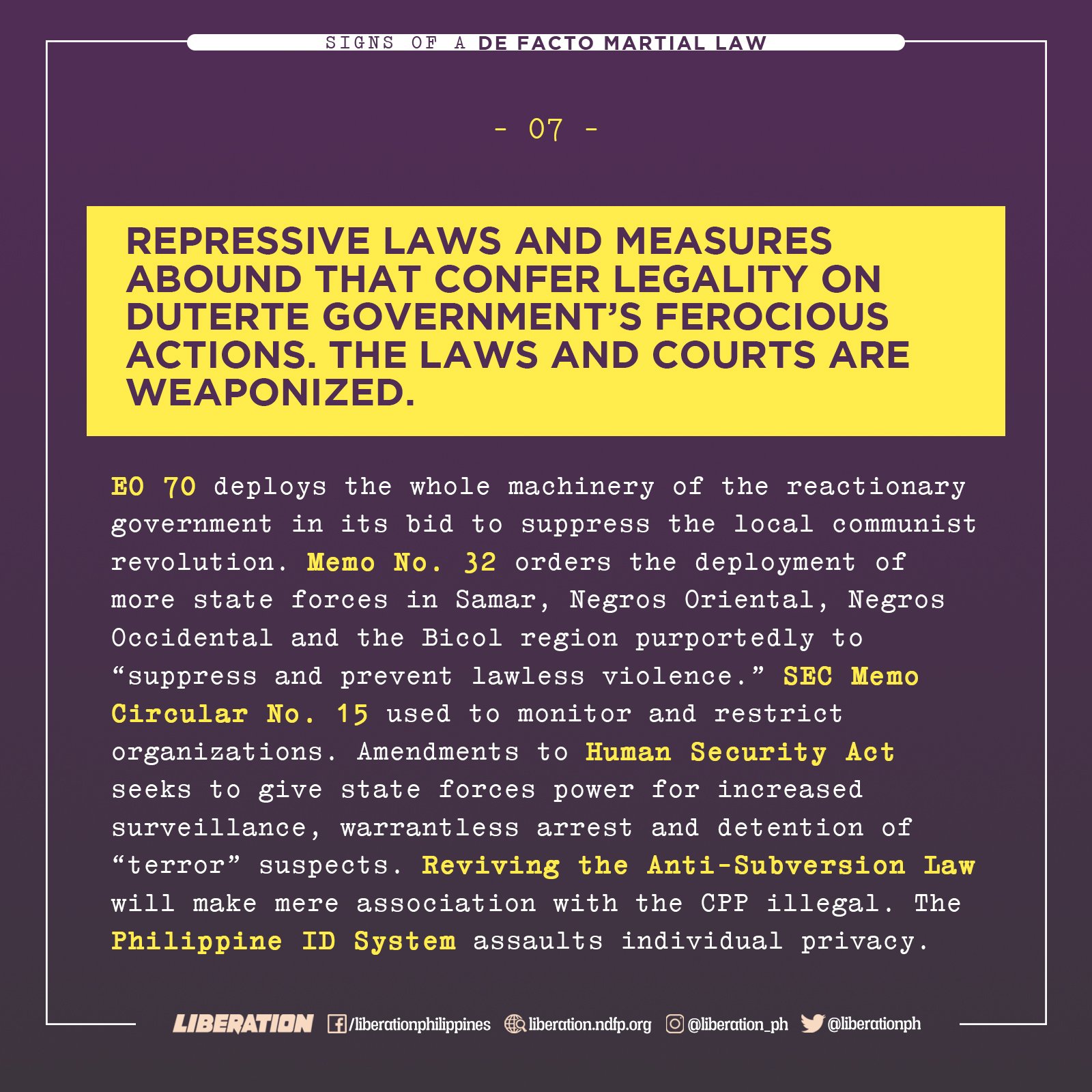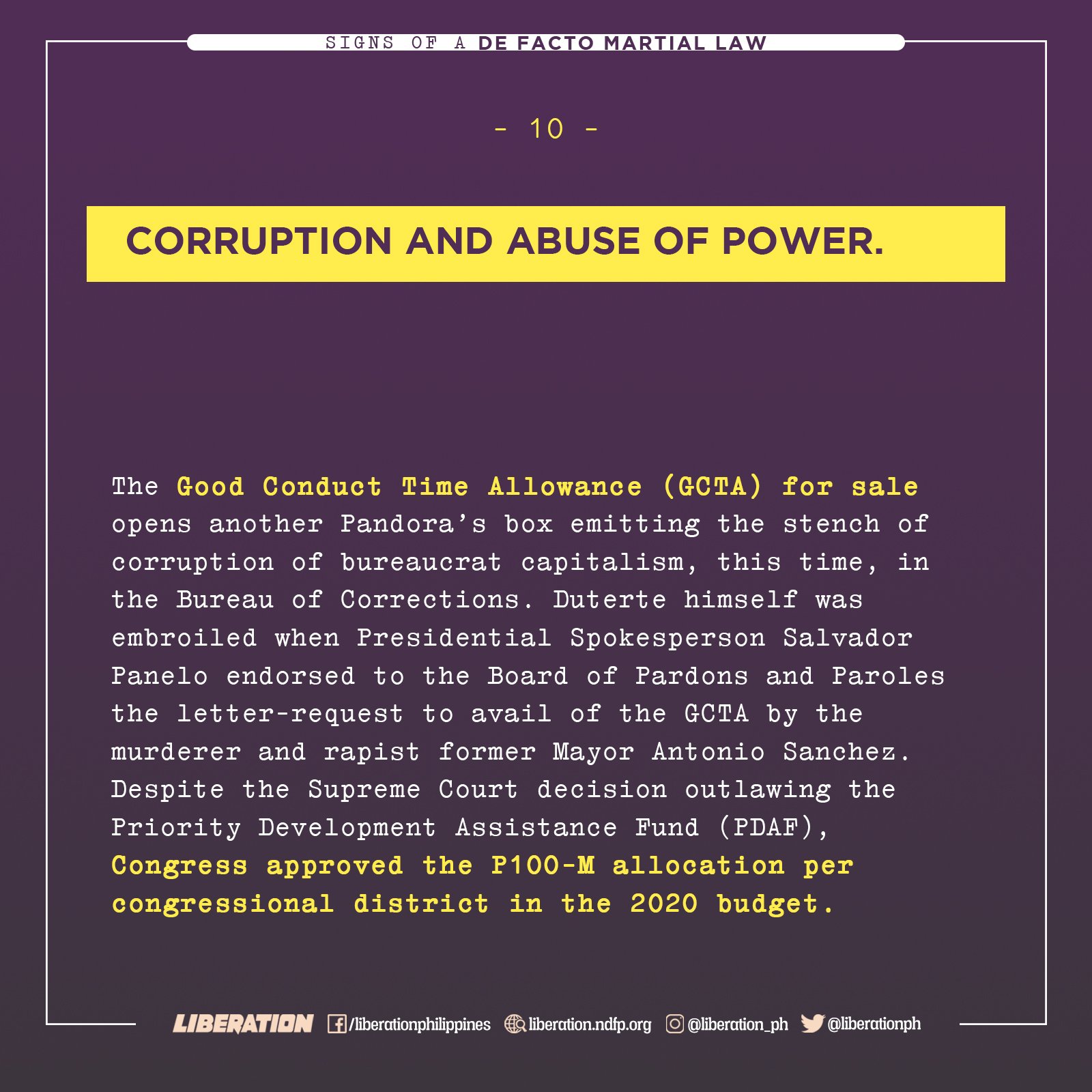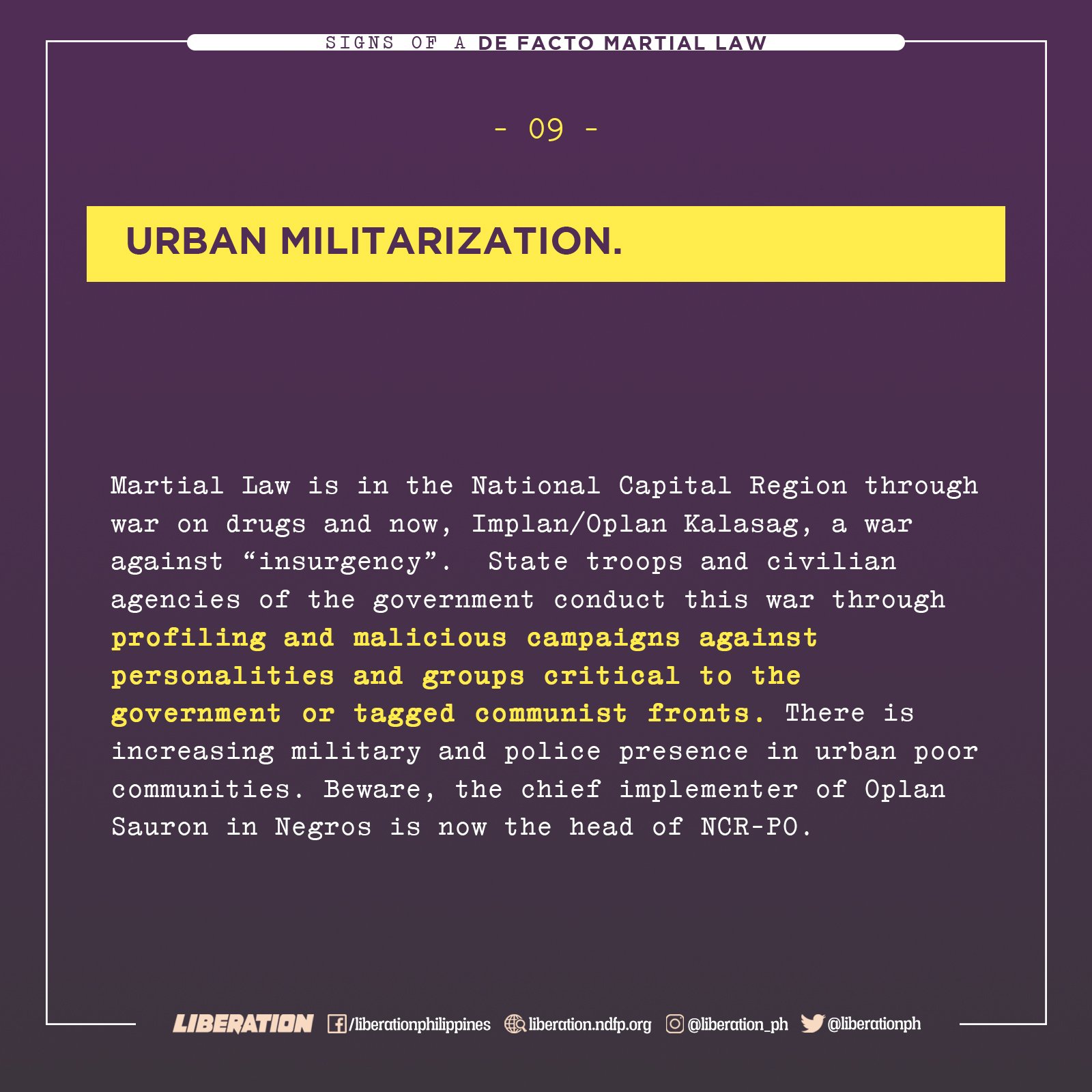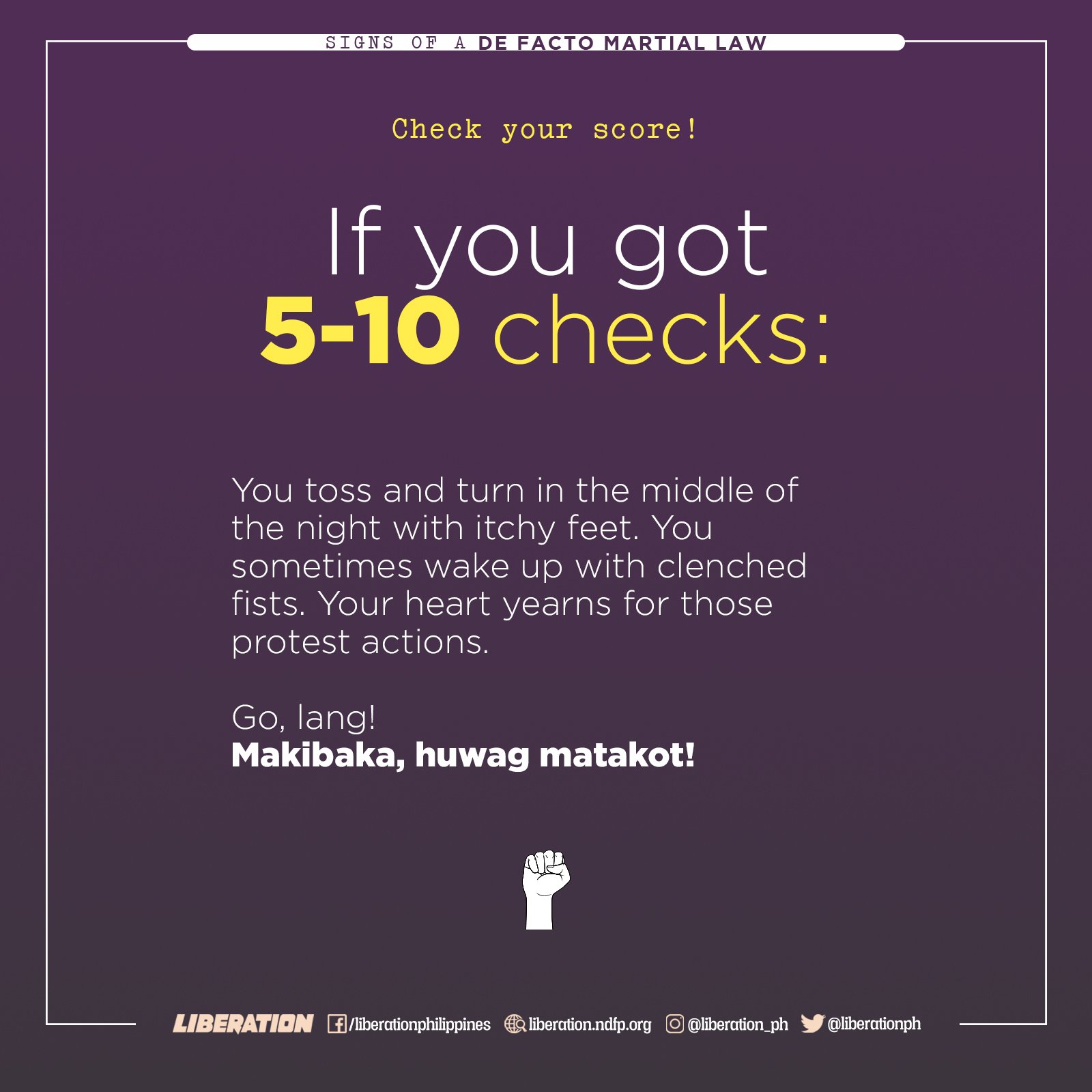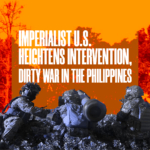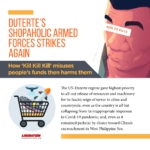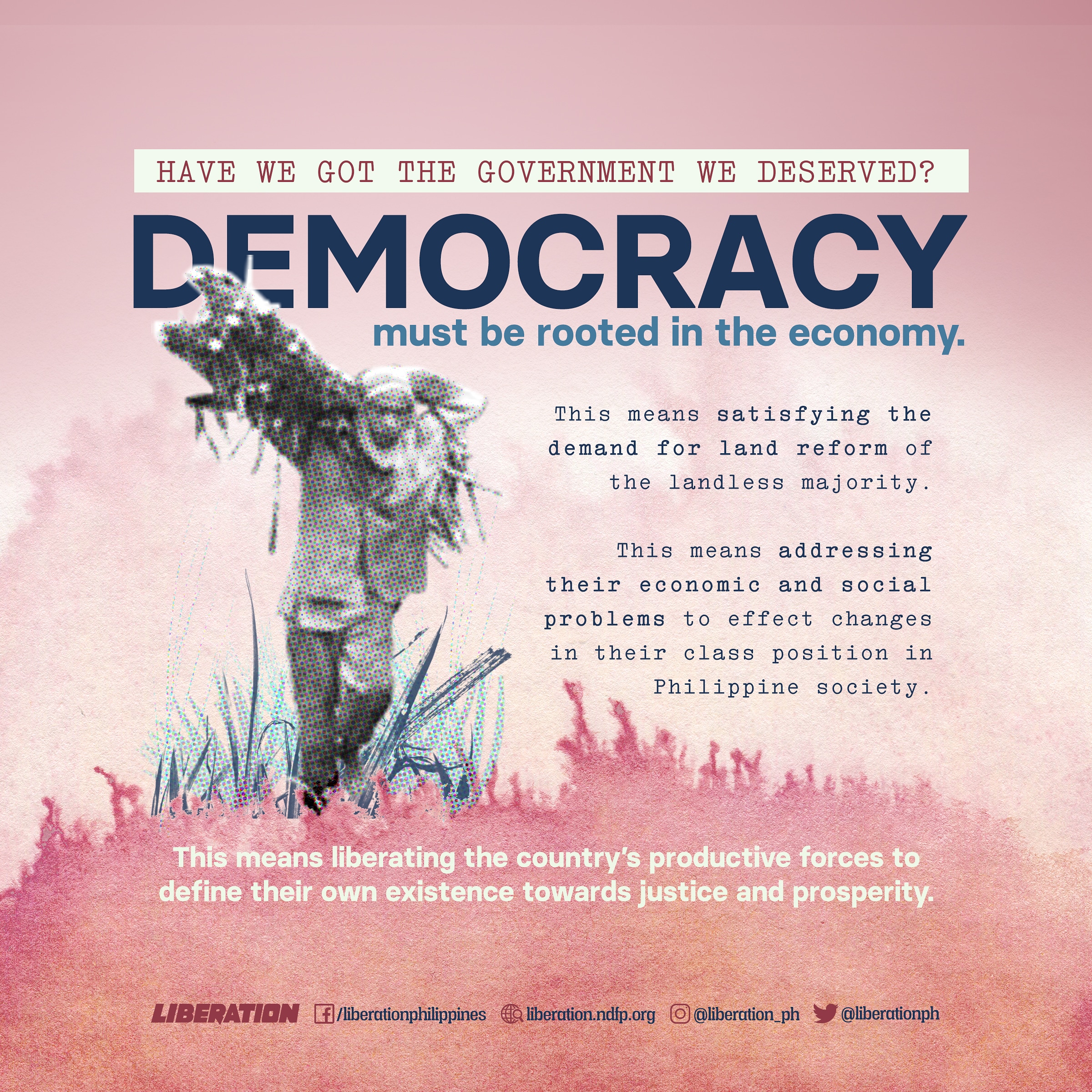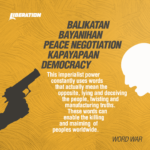STATE TERRORISM ON THE PRETEXT OF ANTI-TERRORISM
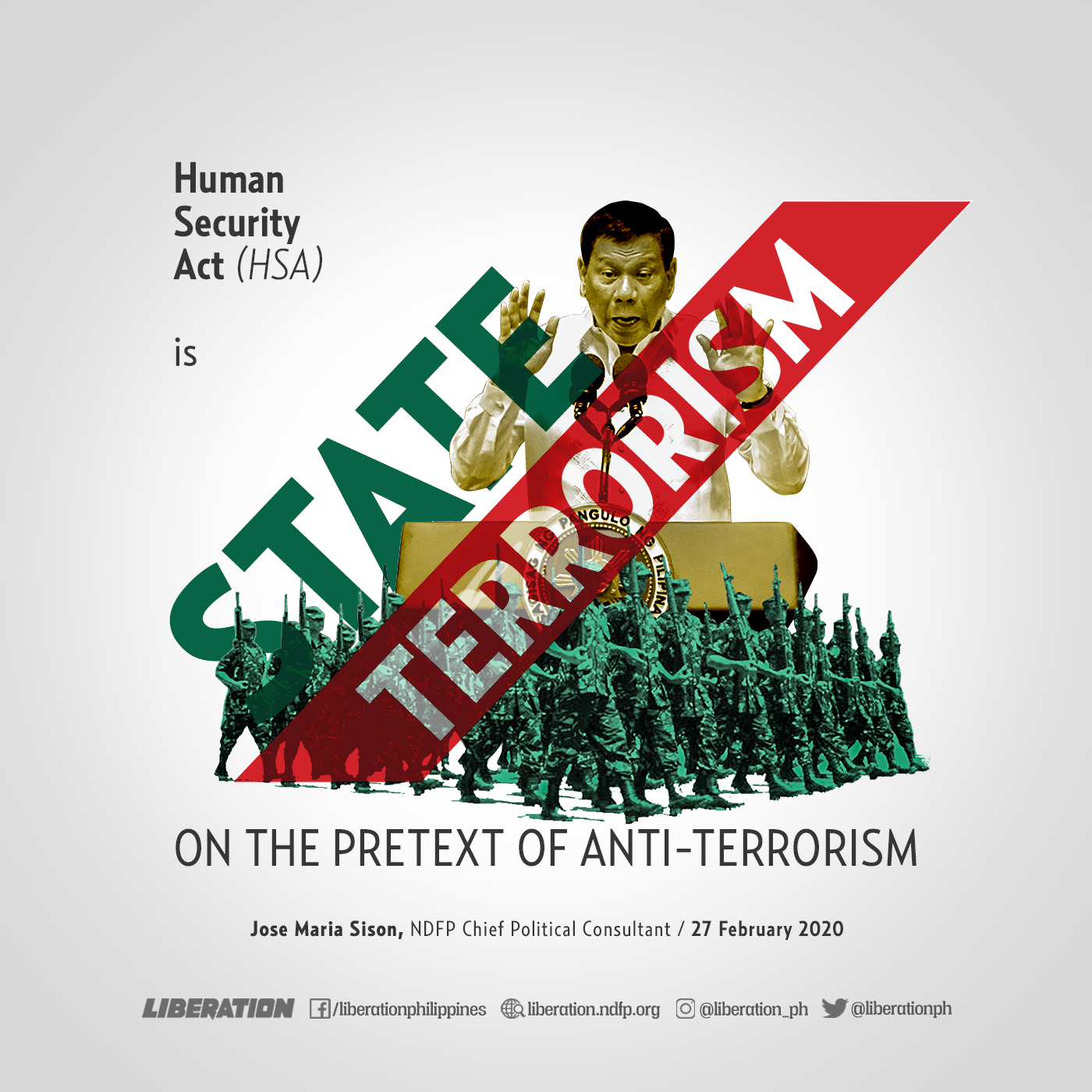
by Jose Maria Sison, NDFP Chief Political Consultant
27 February 2020
The Philippine Senate, now dominated by an overwhelming number of pro-Duterte senators as a result of the rigging of the 2019 mid-term elections, has approved Senate Bill 1083, otherwise known as the Anti-Terrorism Act of 2020, seeking to amend the Human Security Act of 2007.
The bill aims to legalize and aggravate the already rampant state terrorism of red tagging, arbitrary arrests and extrajudicial killings on the pretext of anti-terrorism. It is meant to further entrench the de facto fascist dictatorship of Duterte without need of any formal declaration of martial law as Marcos did in 1972.
Like the term subversion during the Cold War and martial rule under Marcos, terrorism is vaguely defined to make it a catch-all term for any concerted action or any common crime and for taking punitive measures against the broadest range of opposition, critics and social activists in violation of basic democratic rights and fundamental freedoms.
The bill seeks to penalize those presumed by the authorities to propose, incite, conspire, participate in the planning, training, preparation, and facilitation of a “terrorist” act; as well as those presumed to provide material support to “terrorists”, and recruit members for a “terrorist” organization.
It enables the police or military personnel to arbitrarily place individuals and organizations under surveillance; compel telcos to divulge calls and messages; arrest these people without warrant, and detain them for an extended period up to 14 days.
It allows the preliminary proscription of suspected “terrorist” organizations prior to their being given an opportunity to be informed of the charge and avail of counsel and judicial review.
It lowers the standard for warrantless arrest and detention.
It removes from the Human Security Act of 2007 the compensation for persons wrongfully detained. Without any liability, the hounds of the state will violate human rights with impunity and on a wider scale than ever before.
Regional trial courts can outlaw individuals and organizations as “terrorists” on the mere say so of the regime, the police or military as well as upon the request of foreign or supra-national agencies. The imperialist masters will also benefit from the state terrorism of the Duterte puppet regime.
We can be certain that the regime and its military and police agents will engage in surveillance, warrantless arrests and arbitrary detention, cruel and disproportionate punishments, and violations of the right to freedom of association, free expression, right to privacy, mobility, and to due process.
The Lower House of Congress, also dominated by the pro-Duterte supermajority united by pork barrel corruption, is also in the process of passing a so-called anti-terrorism bill like that of the Senate. Such bill is synchronized with bills for changing the charter and extending the terms of elective government officials.
The Duterte regime and its followers know no limits in their escalation of the oppression and exploitation of the broad masses of the people. They are closing every possibility for peace negotiations with the NDFP.
They are inciting the people to wage all forms of resistance in defense of their national and democratic rights.
As did the Anti-Subversion law in the past, the current “anti-terrorist” legislation by the running dogs of Duterte in Congress will not deter the people’s revolutionary movement but will persuade more millions Filipinos to take the road of armed revolution in order to achieve their national and social liberation from the semicolonial and semifeudal conditions that have been made more intolerable than ever by the the tyranny of the Duterte regime. ###
#PHstateterror
#JunkTerrorBill
#OustDuterte
—–
VISIT and FOLLOW
Website: https://liberation.ndfp.info
Facebook: https://fb.com/liberationphilippines
Twitter: https://twitter.com/liberationph
Instagram: https://instagram.com/liberation_ph

